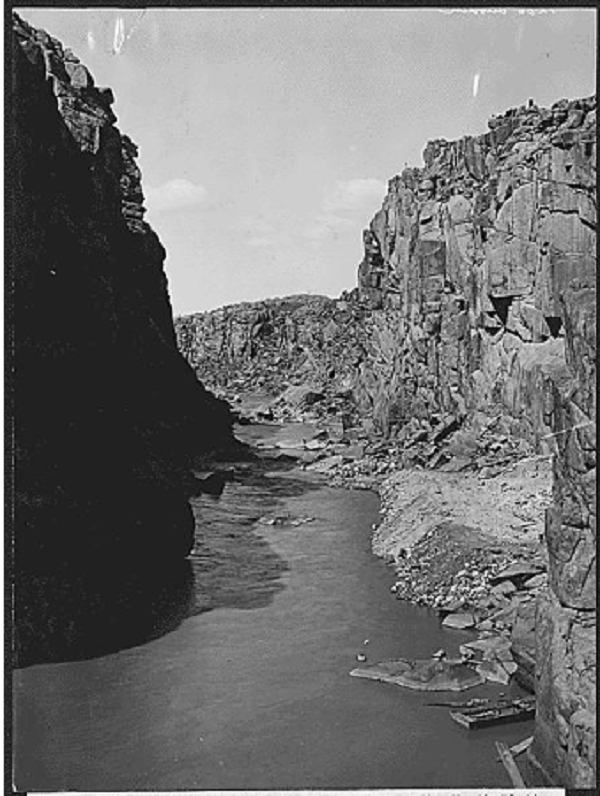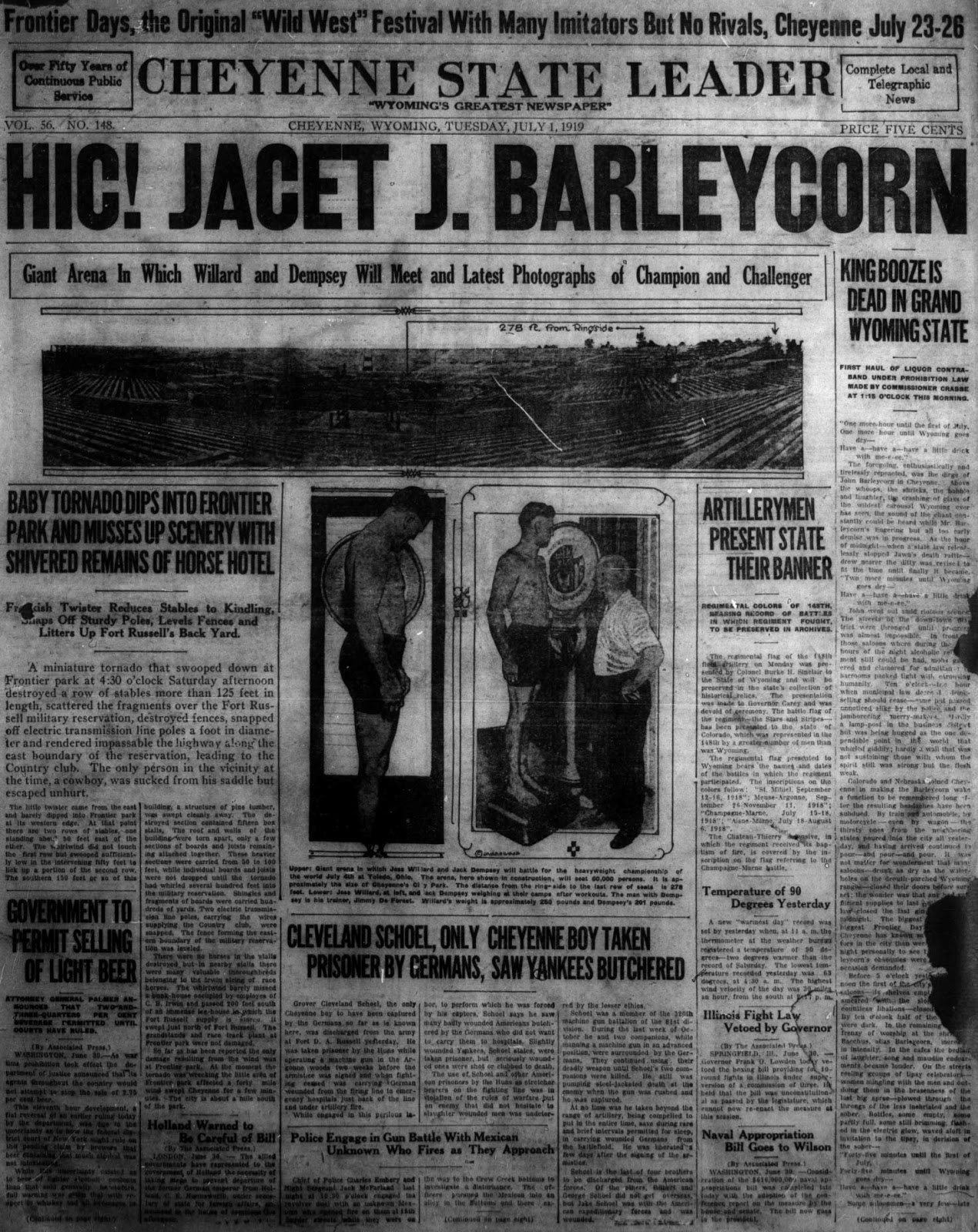1776 The term "United States" was adopted by the second Continental Congress to be used instead of the "United Colonies."
1845 The arrival of the potato blight in Ireland is reported in the Dublin Evening Post. This would, of course, be seemingly unrelated to the theme of this blog, but the Potato Blight would result in the commencement of the great Irish immigration to the United States, and to what would ultimately become a significant Irish immigrant population in Wyoming.
1850 Territories of New Mexico and Utah were created.
1876 The second day of the Battle of Slim Buttes, South Dakota, sees the first day's fighting. The 3d Cavalry had surrounded a Sioux village undetected the night prior and charged this morning. American Horse was mortally wounded. Indian survivors fled to the neighboring Cheyenne and Sioux village. In he meantime, elements of additional cavalry and infantry units arrived at the occupied village.
Sioux and Cheyenne under Crazy Horse to counter attacked but were surprised by the numbers of soldiers then in the occupied camp. They did open fire and Crook, in command, formed defensive positions, and then sent forward skirmishers. This was effective in driving the Sioux and Cheyenne away. 110 Indian ponies were seized in the village, along with a supply of dried meat, a 7th Cavalry guidon from Company I, the bloody gauntlets of Capt. Myles Keogh, government-issued guns and ammunition, and other related items.
This concluded the first day's fighting.
1885 Additional U.S. troops arrive in Wyoming due to the Rock Springs Massacre. They escort Chinese workers, against their desires, back to Rock Springs.
1886 Construction commenced on the Wyoming State Capitol although the cornerstone would not be laid until the following year. Attribution: On This Day.
1918 Monday, September 9, 1918. The news in Casper. Old Indian Fighter back in town. . . Debs goes on trial. . . French cavalry on the move. . . State Guard assembles in town. . .Corn crop low. . . and Ruth hits a triple to give the Sox the World Series.
1918 Monday, September 9, 1918. The news in Casper. Old Indian Fighter back in town. . . Debs goes on trial. . . French cavalry on the move. . . State Guard assembles in town. . .Corn crop low. . . and Ruth hits a triple to give the Sox the World Series.
1920 Cheyenne's airport saw its first airmail flight. Attribution: On This Day.
1925 Sheridan area rancher, Oliver Wallop, became Earl of Portsmouth upon death of brother. O. H. Wallop was English born and a member of the titled class. The Wallop family was part of a significant English ranching community that was centered in the Sheridan area, but not limited to it. British ranching operations entered Wyoming as early as 1876 and continued on well into the 20th Century. Montana likewise saw a significant community of English ranchers. Some were family owned operations, such as this, but others were British corporate owned operations, such as the Natrona County headquartered VR (Victoria Regina) Ranch.
Wallop had served in the Wyoming legislature and was a naturalized U.S. citizen. In order to take his place in the House of Lords he had to renounce his U.S. citizenship.
1945 The term "computer bug" was first used by LT Grace Murray Hopper while she was on Navy active duty in 1945. It was found in the Mark II Aiken Relay Calculator at Harvard University. The operators affixed the moth to the computer log, where it still resides, with the entry: "First actual case of bug being found." They "debugged" the computer, first introducing the term.
In honor of this disturbing event, I propose that this day henceforth be known in the computer age as "Grace Murray Hopper Day".
1951 FCC filings were completed for a public television station at the University of Wyoming.


















.jpg)



















